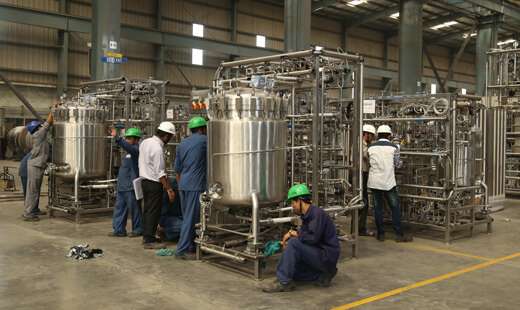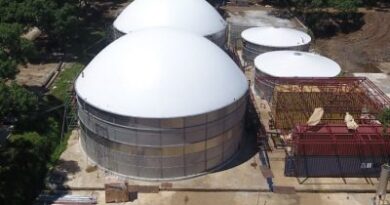Praj, ISMA join forces for bio-economy, associated infrastructure
The collaboration will also explore future opportunities in bioenergy technologies such as 2G Ethanol, Compressed Biogas (CBG), Green Methanol, Green Hydrogen, and other emerging innovations.

Praj Industries has signed a Memorandum of Understanding (MoU) with the Indian Sugar & Bio-energy Manufacturers Association (ISMA) under which the two entities will jointly advance the bio-economy. The agreement also entails building a resilient, low-carbon bioenergy infrastructure. Both Praj and ISMA are committed to spearheading initiatives for Sustainable Aviation Fuel (SAF) and driving the shift toward a greener, more sustainable future.
Praj believes that this partnership marks a crucial milestone in achieving energy security, reducing carbon emissions, and promoting sustainable development.
Additionally, the collaboration will explore future opportunities in bioenergy technologies such as 2G Ethanol, Compressed Biogas (CBG), Green Methanol, Green Hydrogen, and other emerging innovations.
Praj Industries remains a leader in technology-driven ethanol production solutions, emphasizing sustainable practices and a customer-centric approach in its global operations. Over the past four decades, the company has concentrated on the environment, energy, and agri-process industries, with more than 1,000 customer references across 100+ countries on all six continents.
ISMA, the association of private sugar mills in India, recognizes the evolving landscape of the sugar industry and is committed to addressing the growing importance of bioenergy in the country’s energy transition.
Last month, Praj signed an MoU with the Vasantdada Sugar Institute in Pune to establish a Centre of Excellence (CoE) focusing on the Bioeconomy and the Farm-to-Fuel approach.
Recently Praj partnered with Brazilian ethanol giant Be8 by entering into a license agreement to establish the process, design, and engineering for its first ethanol plant in Passo Fundo, Rio Grande do Sul, Brazil requiring an investment of approximately R$1 billion.




